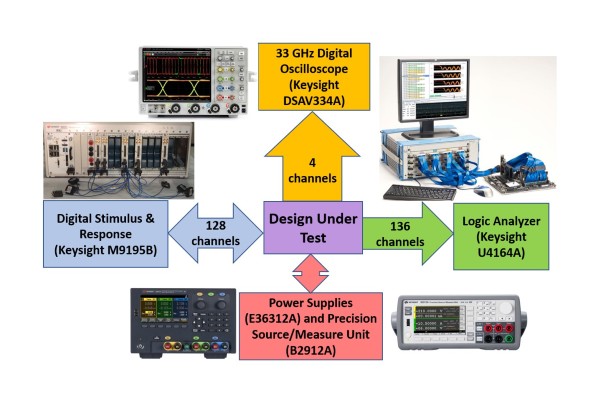August 18, 2020

Dr. Hamid Mahmoodi, Professor in Computer and Electrical Engineering, leading a team of faculty members from the School of Engineering and the Department of Physics & Astronomy at San Francisco State University (Drs. Hao Jiang, Xiaorong Zhang, David Quintero, and AKM Newaz), received an instrumentation award of $599,684 from the Department of Defense (DoD) Research and Education Program for Historically Black Colleges and Universities and Minority-Serving Institutions (HBCU/MI). This award supports the acquisition of a state-of-the-art high frequency oscilloscope, logic stimulator and analyzer, precision source/measure unit, and power supplies from Keysight Technologies. The instruments will be connected and synchronized to provide a major system that will be used for testing, debugging, and characterizing digital, analog and mixed signal integrated circuits and circuit boards. It will open new avenues for research at an institution that serves many students from underrepresented groups. The instrument will provide new multi-user experimental research capabilities and augment existing capabilities to support diverse research areas in hardware security, machine learning, neural-machine interface, robotics, and semiconductors that are of interest to all DoD agencies. In addition to enhancing research capacity, the system will provide opportunities for Master’s and undergraduate students to engage in research using leading-edge technologies enabling them to acquire the skills to compete successfully for positions in the technology sector and/or matriculate in Ph.D. programs. The equipment acquired will provide opportunities for recruiting, retaining, and engaging faculty and students, in particular those from underrepresented groups, in engineering and physics at one of the nation’s most ethnically and culturally diverse universities. It will thereby contribute to increasing diversity in the STEM fields, while training the next generation of a highly skilled workforce in engineering and physics.